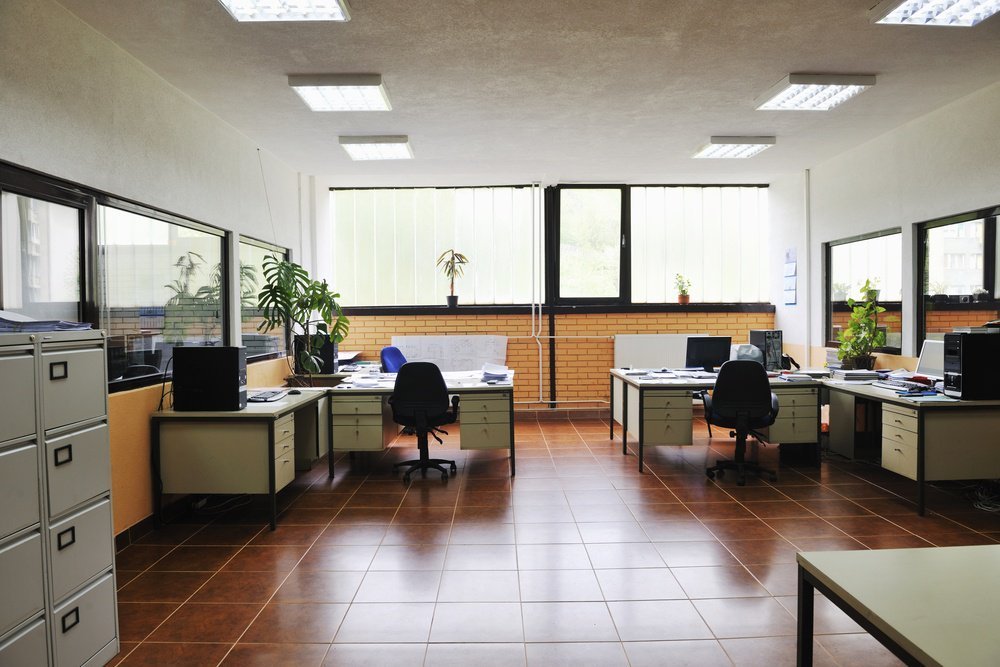
Might an age-old custom, as quaint as it sounds, be one of the best solutions to tackle the threat of coronavirus making further inroads into our everyday, as Autumn turns to winter? The Germans seem to believe it could be, as their government has gone as far as to officially sanction something which generations of Germans have always done off their own bat at this time of the year anyway.
While us Brits typically tend to slam shut our doors and windows at the first sign of chillier mornings and evenings, our German counterparts have habitually tended to adopt the opposite attitude. And now such actions have been rubber-stamped by Angela Merkel, according to various reputable media sources of late.
Refreshing News Emerging from Germany
Don't forget you heard it here first, when people talk about 'ventilation rooms'. Yes, the concept of fresh air to tackle the unwelcome intrusion of Covid-19 in our homes this winter, shouldn't really be that shocking a news headline, when you think about it. The clue is in the title, after all.
'Fresh air', and the ready circulation of this plentiful natural commodity/deterrent, being invited into our homes, businesses and public indoor spaces where we gather at this time of year, is basically a no-brainer. And like we said at the top, something the Germans have been busy perpetuating for years.
Back to Basics Approach to Air Hygiene During a Global Pandemic Starts at Home
Only now German officials have given the green light for the rather simplistic formula to be actively encouraged on a larger scale, as opposed to simply acknowledging it as a habit many folk do by force.
Air hygiene specialists in Germany reckon the enduring custom needs to be rolled out to the furthest and widest points. Not just in Germany, but across the globe, hypothetically. Bordering on something of a national obsession, many Germans have flung open the windows to their properties - both domestic and commercial - twice a day for an eternity. And throughout winter, as much as the spring and summer months.
In fact, in various scenarios, it comes as an enforced directive. Like for example in rental agreements, where it's been legislated that fresh air needs to be allowed to flood into buildings, with the hitherto view of safeguarding against the onset of mould and unforgiving interior odours.
Of course, now, the health implications are even greater. Given the continued risk posed by Covid-19 once it travels indoors and makes itself at home.
Detractors will inevitably consider such rudimentary measures which we can all perform as somewhat 'primitive'. That's as maybe, yet there's no escaping the fact that circulation fresh air around properties remains one of our best deterrents right now, in this war against the unseen bacterial threat.
It also represents a cheap and effective means of tackling a problem which the world's biggest scientific and clinical brains are attempting to get on top of one way or another.
Germans Lead by Example When it Comes to Neutralising Threat of Virus Courtesy of Indoor Air Hygiene Practices
Addressing her audience, the German chancellor insisted how important it was to action this mantra in tandem with existing protocols already in place. She explained how her government’s guidelines designed and implemented to counter the surge of infections were encapsulated in the acronym AHA. Which stands for distancing, hygiene and face coverings; in German. And how she plans to extend the acronym to become AHACL. With the “C” representing the government’s coronavirus warning app, and the all-important “L”, in recognition of the word, 'Lüften'.
Which translated into English refers to the 'airing of a room'.
To be even more accurate, 'Stosslüften' is the literal German interpretation of 'impact ventilation'. And probably only familiar to those employed in the air hygiene sector. Essentially this describes the practice of opening windows to encourage the circulation of air through a building for a minimum of 5 minutes, both in the morning and evening.
Ramping up this ethos still further, and 'querlüften' (or 'cross ventilation') is the real game-changer in this basic field of air hygiene-empowering. Which sees the opening of all the windows in a property are routinely opened, promoting the removal of stale air, and in exchange enveloping the onset of fresh air.
Are German Windows Manufactured Differently from UK Versions?
Yes, in Germany, windows are made with sophisticated hinge technology. It's these design principles which ensures that they can be opened in various directions, so as to enable varying degrees of 'lüften'.
But Back to the Business of Pandemic-proofing Our Homes and Places of Employment.
Keen to seize on this, Germany's leading coronavirus expert, Christian Drosten - also Head Virologist at the Berlin's Charité hospital - has spent an entire pandemic-themed podcast highlighting the importance of 'luftverdünnung' and 'luftbewegung'.
The former meaning air rarefaction, the latter, air movement. As if that wasn't enough, poplar German weekly, 'Die Zeit', has published a 10-page feature focusing on ventilation alone. Poring over the science which underpins the logic, and how best to practice it during the impending winter.
To Summarise, Why Will Indoor Air Hygiene Be So Crucial in the Fight Against Covid-19' Impact?
Largely because it's understood that in the region of some 90% of coronavirus patients contract the virus when in an indoor environment. Hence the urgency to look into all means of countering the threat.
German schools have been facilitated as testing grounds, to establish just how successful these simple measures are in slowing down the spread of the hugely infectious disease.
Air hygiene specialists - including fluid mechanics, indoor air hygienists and aerodynamicists - were involved, to determine best practices, oversee implementation and scrutinising results. All findings reinforced the importance of airing a room every 15 to 20 minutes, for at least 3 minutes (but ideally, 5) in winter.





